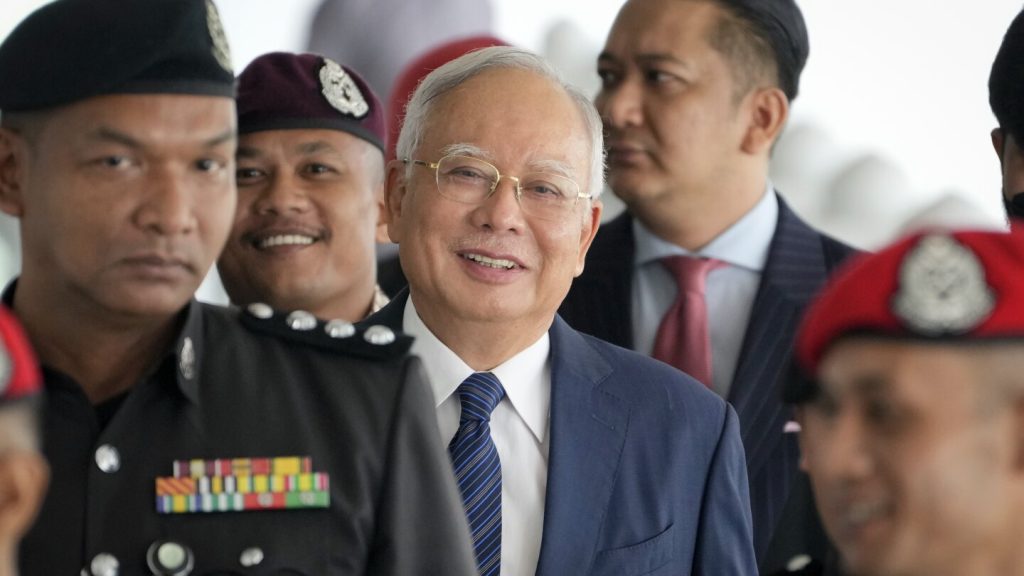Former Malaysian Prime Minister Najib Razak, who is currently serving a reduced prison sentence for corruption, is seeking to finish his term under house arrest. His unexpected application alleges that then-King Sultan Abdullah Sultan Ahmad Shah issued an order during a pardon’s board meeting to reduce his sentence by half. Najib is seeking government verification and implementation of this order. The hearing for his application has been postponed to April 17. Sultan Abdullah, who comes from Najib’s hometown of Pahang, ended his five-year reign on Jan. 30 as per Malaysia’s rotating monarchy system.
Najib, 70, has only served a portion of his 12-year sentence, which was supposed to end in 2028 before being commuted. He was convicted in a corruption case related to the looting of state fund 1MDB, where billions of dollars were allegedly stolen and laundered through his associates. Najib accused several entities, including the pardons board, home minister, and attorney-general, of concealing the sultan’s order. The home minister denied knowledge of such an order, stating he was not a member of the pardons board. Najib set up the 1MDB fund during his time in office in 2009.
The scandal surrounding the 1MDB fund led to Najib’s party’s defeat in the 2018 election, marking the end of its long governance in Malaysia. Despite his conviction and imprisonment, Najib still holds influence within his party, which is part of the current unity government. He maintains his innocence, blaming financier Low Taek Jho for deceiving him. Low, believed to be the mastermind behind the scandal, remains at large. Najib’s additional graft trial related to the 1MDB scandal is ongoing. His final appeal in court was rejected in 2022, making him the first former Malaysian premier to be imprisoned.
Najib’s attempt to serve the remainder of his sentence under house arrest has stirred controversy in Malaysia, where the 1MDB scandal remains a significant issue. The former prime minister’s application cites a royal order issued by then-King Sultan Abdullah, but the government officials named in the application have denied knowledge of such an order. The case highlights the ongoing legal battles and political ramifications of the corruption scandal that rocked the country. Despite facing imprisonment, Najib retains political influence within his party, demonstrating the complex dynamics at play in Malaysian politics.
As the legal proceedings continue and the fallout from the 1MDB scandal persists, the future of Najib Razak and his political career remains uncertain. The case has become a key point of contention in Malaysian politics, with implications for the country’s governance and reputation on the global stage. The efforts by Najib to change the terms of his imprisonment have sparked debate and scrutiny, drawing attention to the challenges of addressing corruption and holding leaders accountable for financial misconduct. The ongoing saga surrounding Najib and the 1MDB scandal underscores the complexities of power, influence, and justice in Malaysia’s political landscape.


